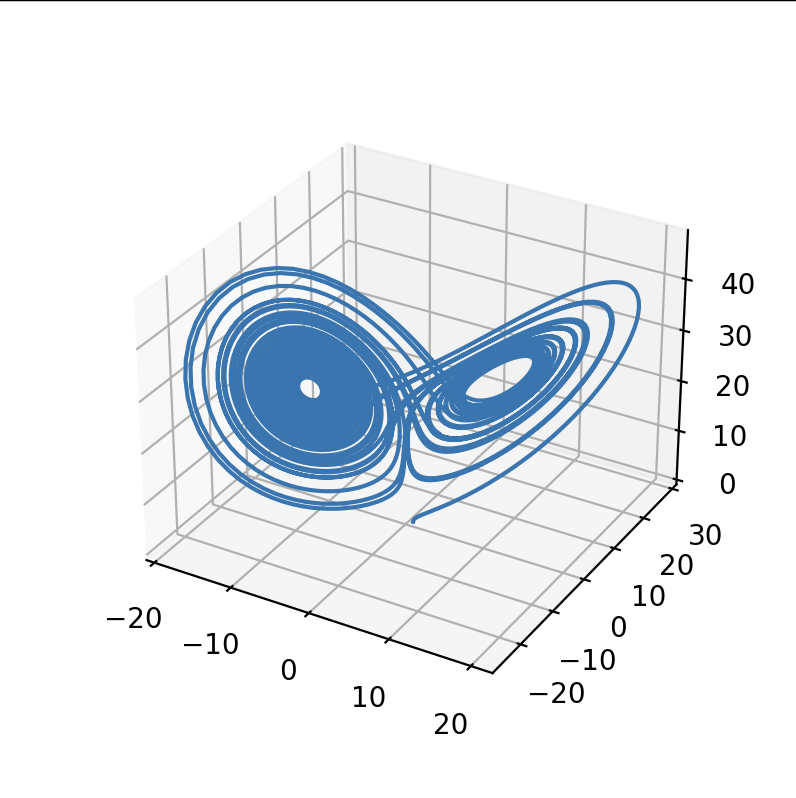Ordinary differential equation solving in pure Zig and almost entirely on the stack! Tiny weekend project, will probably not be actively maintained.
const std = @import("std");
const zigode = @import("zigode");
// define problem
fn lorenz(du: *[3]f64, u: *const [3]f64, _: f64, p: *LorenzParams) void {
du[0] = p.sigma * (u[1] - u[0]);
du[1] = u[0] * (28.0 - u[2]) - u[1];
du[2] = u[0] * u[1] - (p.beta) * u[2];
}
// problem parameters
const LorenzParams = struct{
sigma: f64 = 10.0,
beta: f64 = 8.0 / 3.0
};
var gpa = std.heap.GeneralPurposeAllocator(.{}){};
pub fn main() !void {
defer _ = gpa.deinit();
// need to tell the solver the function and parameter type
// so that everything can be comptime resolved and stack allocated
var prob = zigode.Tsit5(lorenz, LorenzParams).init(.{});
// get common solver interface
var solver = prob.solver(gpa.allocator());
const u: [3]f64 = .{1.0, 0.0, 0.0};
var sol = try solver.solve(
u, 0.0, 100.0, .{.save = true, .dt = 1e-2, .max_iters = 10_000}
);
defer sol.deinit();
// print solution overview to stdout
const stdout = std.io.getStdIn();
try sol.printInfo(stdout);
// then write it to a file and plot it with your plotting package of choice
} Currently implemented is only the basic fixed step-size Newton method, and Tsitouras 5/4 Runge Kutta.
The scope of this project is just so I can write a quick weekend relativistic ray tracer in Zig, and so the plan is extremely limited:
- Callback functions
- Adaptive step size algorithms
- Serialise and export solution to known format
- Multi-threaded solving
- (stretch) Interpolations
This work is heavily inspired by the Julia DifferentialEquations.jl library and SciML ecosystem. The Tsitouras 5/4 coefficients are taken directly from their implementation.
